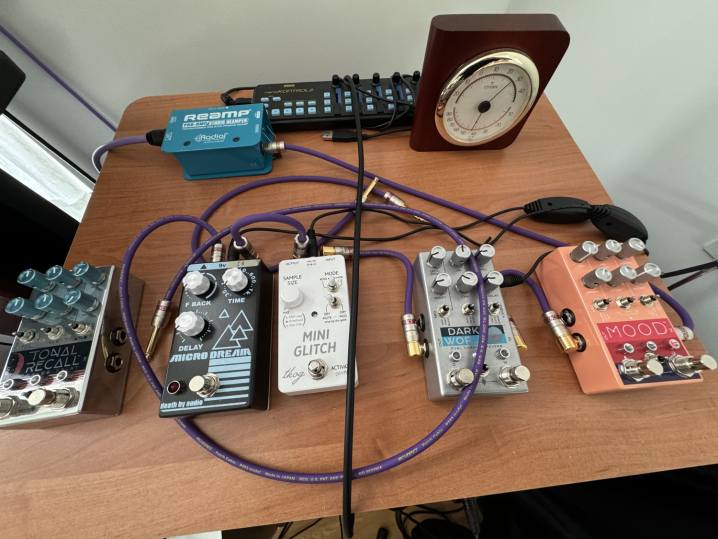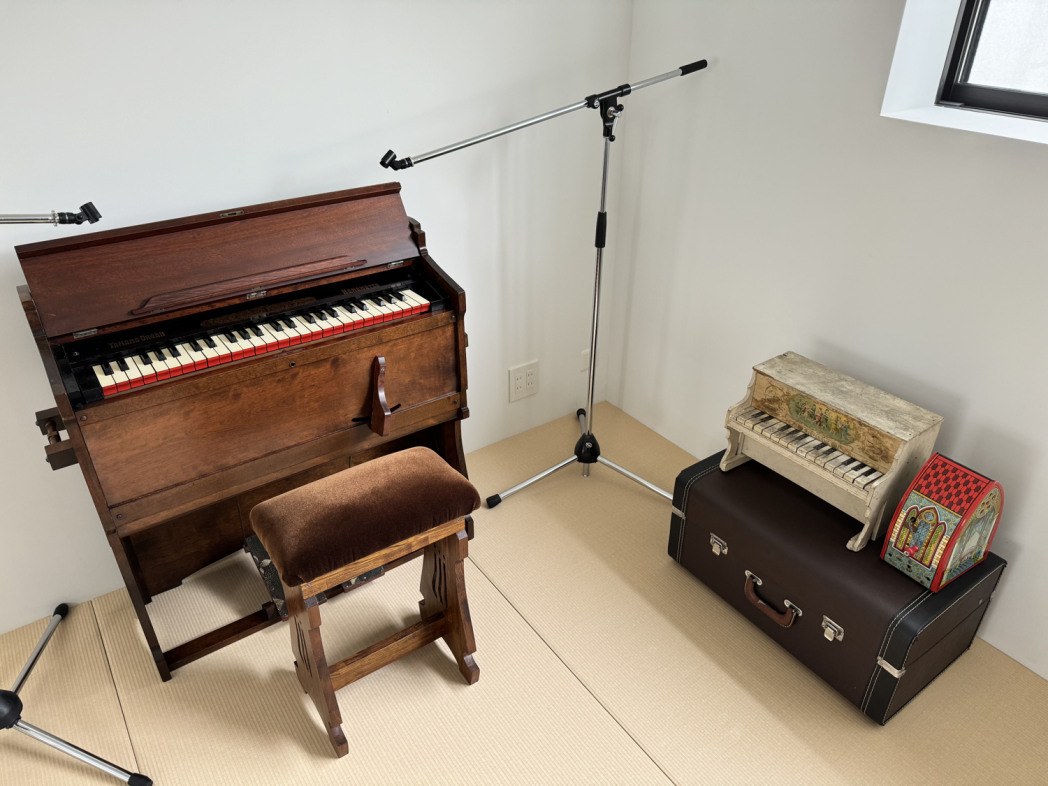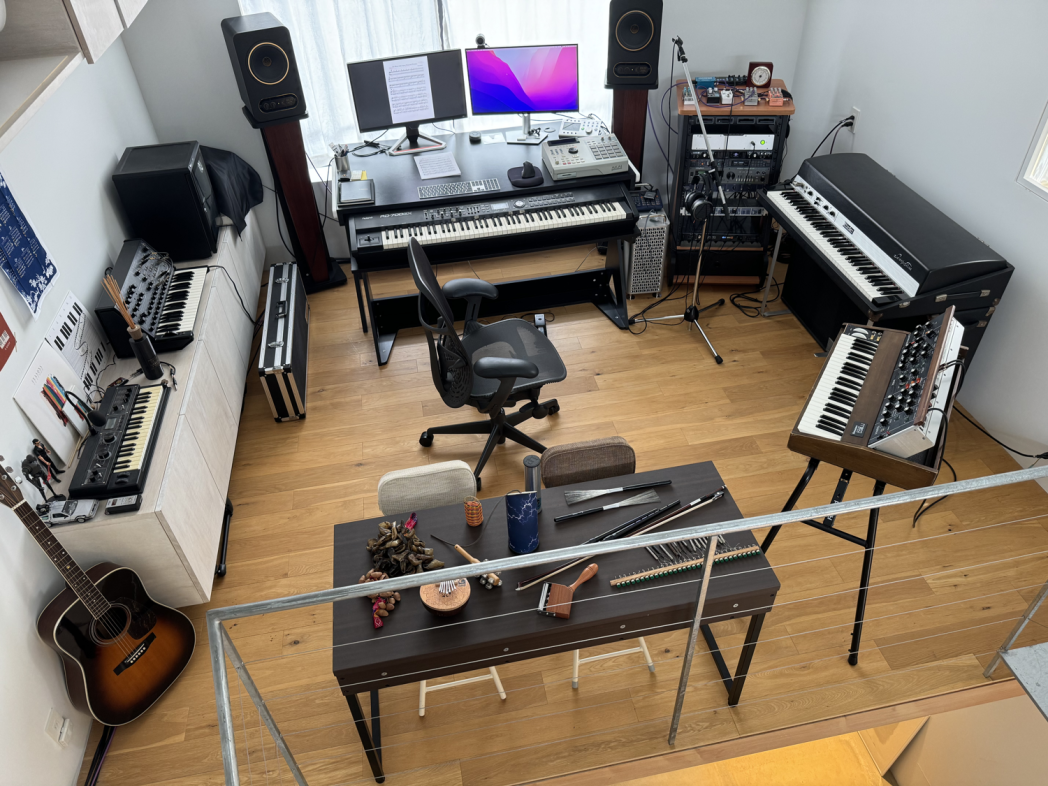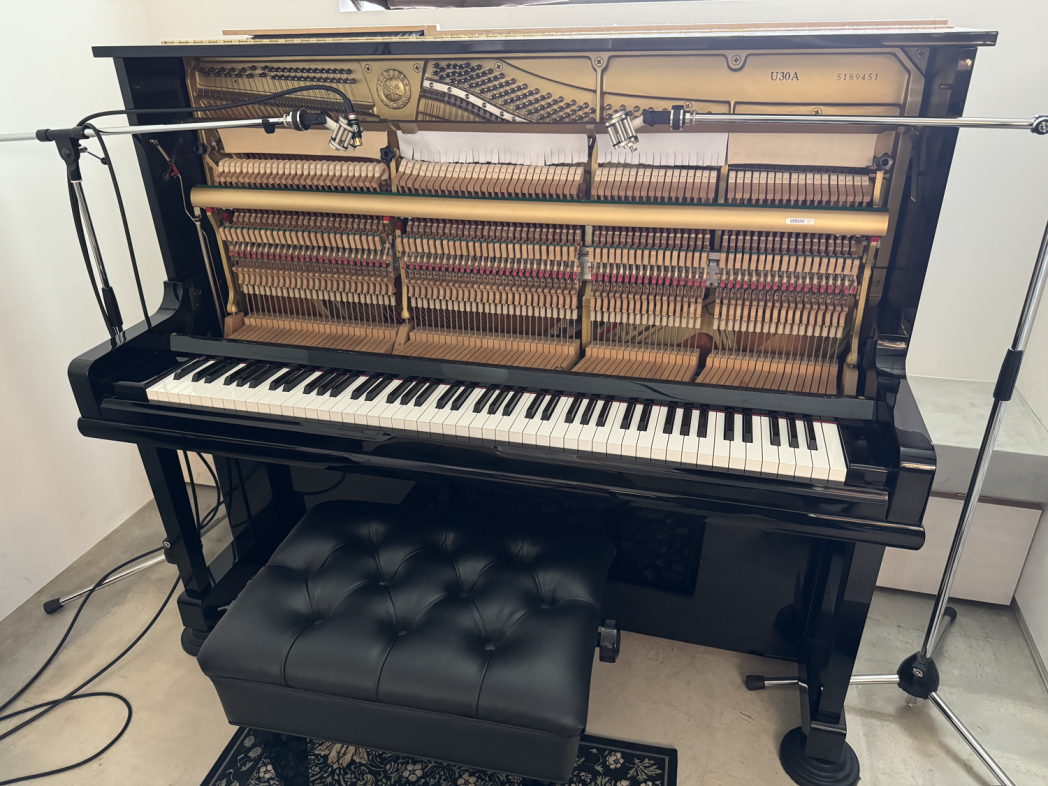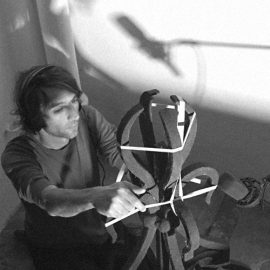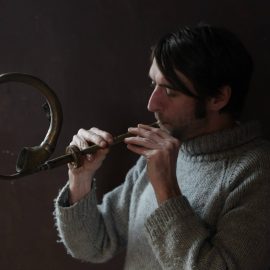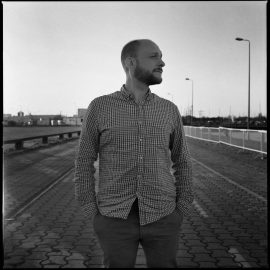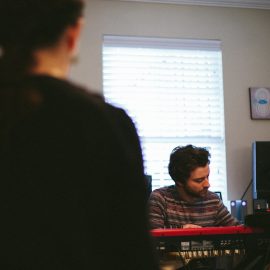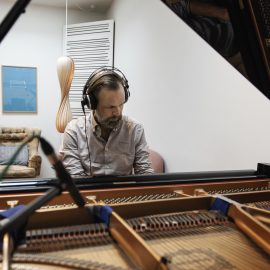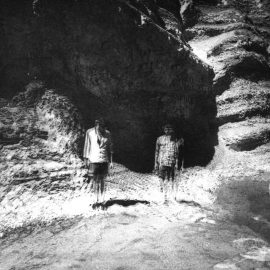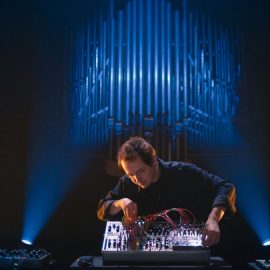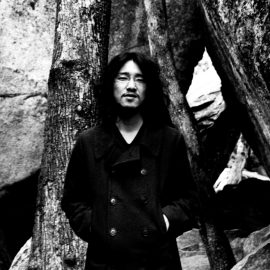Let’s start at the very beginning. Can you tell us how you got involved in composing, and what was your very first piece of gear?
In the beginning, I did not expect to become a composer or pianist. Although I had learned playing the classical piano when I was three years old, it was not interesting for me then. My first interest in music was film music when I was around ten years old. That sparked my spontaneous desire to listen to the music deeply, then I started to dig into film music and the various genres of it. I also played in a loud band when I was in high school.
Around the age of twenty, I began to listen to ambient music and, gradually, electronica. Around that time, I suffered from mental and physical issues, and I could not even get on a train for about six months. I had been home, but eventually, I started going out to nearby parks and recording the sounds with a portable recorder. It was a kind of rehab to keep connecting with the world, but after I brought it back home and listened to it, it made me feel inspired – because those sounds were different from what I was listening to at the time. In other words, I realized that the human sense of hearing did not perceive all sounds and there are much more unconsciously excluded sounds in the world. This realization led me to start editing the field recordings in my own way, and sometimes, I would sample the sound files and play them along with piano or synthesizers. I started creating things for the first time, and that was the beginning of my composing career.
My first piece of gear was the Yamaha upright piano which my aunt bought for me around 1990. And from when I started composing until now, I’ve been using this piano for my recordings of the solo work, including the albums released by ROOM40 sub-label, It’s On Everything and Polaroid Piano, my recent piano albums like 88 Keys Ⅰ&Ⅱ and SEASONS. This piano has been my long-time partner for more than 30 years. Also, the piano technician has been the same guy since I first got the piano. I became a man, and he became an old man.
Tell us about your favourite piece of hardware.
Recently, I bought a very old Yamaha reed organ. It was made in the 1910s in Japan, the specialist who repairs vintage pianos and organs in Osaka restored it and I went to play it in their studio this past Spring. This is such a beautiful instrument, and the sound of it is unique – something between an accordion and a clarinet. I also bought the Minimoog Model D from the 1970s. I’ve been using this vintage synthesizer as the synth bass on my recordings very often since last year.
And what about the software that you use for production?
My DAW has been Ableton Live since 2005. So, I’ve been using Max for live performance a lot, because Max MSP is very popular for my age, it was the revolutionary software in the early 2000s. And my favorite software is Molekular – it is very practical for creating textured sound from the original audio file and sending it to the effectors of the hardware like Chase Bliss Audio, which works well.
Can you please share some aspects of sound design in your work?
For me, making the original texture sound is as important as playing the instrument. It’s very inspiring for me in adding other instruments, and helps me get into the song deeply. I’m also a film composer so this sense is very useful for film music scoring as well.
Any particular new techniques that you tried out for your new album?
Yes, but for now, I cannot speak about it in detail because this upcoming album has yet to be announced. It will be unveiled next year. But I will say that I’m paying more attention to antique and ethnic instruments.
What is the most important environmental aspect of your current workspace, and what would be a particular element that you would improve on?
The silence. And the windows, because I need the light and fresh air. I always want to feel the outside, but it’s necessary to be silent. It seems to represent contrasts, but I need both.
What can you tell us about your overall process of composition? How are the ideas born, where do they mature, and when do they finally see the light?
There are two ways to start. One is that I find the concept/theme of the project first. The idea always surrounds me, so I walk around thinking to myself or speaking with someone close to me. Or if the label has a contract, the label A&R is also helping me. But usually, the concept/theme comes from myself and the world, so the important thing is what I always think or care about in my life. If I have an idea, then I start to compose. I skip the concept/theme part, and I play the piano, keyboard, or synthesizer and start finding the right note for me. When I’m doing well, I can find it very quickly and finish the early composing part, the structure of the song. It’s like a diary. The music comes first, then the thoughts. I can feel the connection with the world when I play the piano without any expectations. Then, I keep finding the right harmony and arrangement. This part takes time. I’m trying various things with my gear, like an overdub, effects processing, playing modular or synth. Any instrument is on the table, and I try to imagine what the song needs. Finally, all the demos are confirmed. I plan the recording/mixing timeline with my engineer. I go out of my studio and record the instruments with the musicians at the outside studio. After all the recording, I go to my engineer’s studio and check the mixes of the songs. I care about the details of the mix, like the reverb and delay amount, the texture of the sound, and the level of each track. I need to focus on the details – like looking into the microscope – to assemble all the tracks.
After the piece is complete, how do you audition the results? What are your reactions to hearing your music in a different context, setting, or a sound system?
I test the music on several professional/cheap monitors in my studio and my engineer’s studio. Also, I listen to them while driving or using earphones while walking around with my dog. I keep listening to them until the sounds blend perfectly, and there’s no strangeness.
What gets you inspired?
All things that surround me. The light, scent of air, environmental sound, people’s voices, rustle of trees, rain, sound of stepping the snow, movie, book, talking to my son and wife. I don’t know when or where it comes from, but it always gets me inspired at the right time, and I just talk to the world or into the world through playing the instrument. Because I’m better at expressing things with music than speaking, that’s the reason I keep doing it.
